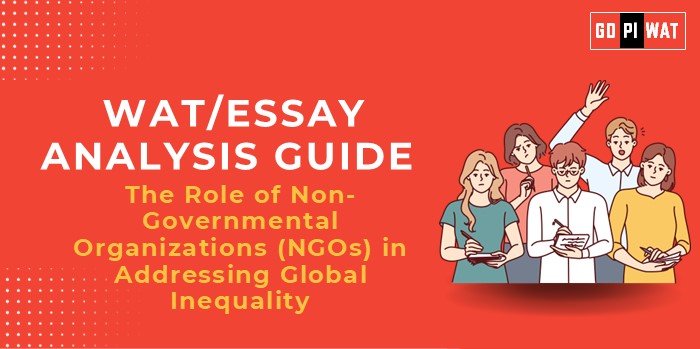🌍 The Role of Non-Governmental Organizations (NGOs) in Addressing Global Inequality
🔍 Understanding the Role of NGOs
Non-Governmental Organizations (NGOs) play a pivotal role in bridging gaps left by governments and corporations. They focus on critical areas such as education, healthcare, and poverty alleviation, aiming to reduce inequalities and promote sustainable development.
🏆 Achievements of NGOs
- 📚 Education: Organizations like Pratham in India have improved literacy rates among marginalized communities, reaching over 5 million children annually.
- 💉 Healthcare: Médecins Sans Frontières (Doctors Without Borders) provides medical aid in conflict zones and underserved regions, saving millions of lives.
- 🌱 Sustainability: Greenpeace has successfully campaigned for environmental justice, influencing global policies on deforestation and renewable energy.
- 💰 Economic Empowerment: NGOs like BRAC in Bangladesh empower women through microfinance, lifting over 2 million families out of poverty.
⚠️ Challenges Faced by NGOs
- 💸 Funding Constraints: Dependence on donor contributions and inconsistent funding streams limit scalability.
- 📊 Accountability Issues: Lack of transparency can erode public trust and hinder long-term partnerships.
- ⚖️ Operational Barriers: Regulatory restrictions and political interference complicate their activities in certain regions.
- 🌍 Global Disparities: Resource allocation often favors urban over rural or remote areas, perpetuating regional inequalities.
🌐 Global Comparisons and Case Studies
- ✅ Nordic Model: Nordic countries integrate NGOs into public welfare systems, achieving measurable reductions in inequality.
- ✅ BRAC (Bangladesh): A global leader in poverty alleviation, BRAC combines microfinance with education and healthcare interventions.
- 📂 Teach for All: Operates in over 50 countries, improving educational access for underserved children worldwide.
🔮 Future Outlook for NGOs
- 💡 Technology Integration: Leveraging AI and big data for targeted interventions and efficient resource allocation.
- 🤝 Public-Private Partnerships: Collaborating with corporations for sustainable funding and operational efficiency.
- 📚 Capacity Building: Training programs to enhance skills and leadership within NGO teams.
💬 Sample Arguments for Discussion
Supporting Stance
“NGOs address gaps in governance and corporate responsibility, effectively tackling systemic issues like poverty and healthcare inequities.”
Opposing Stance
“While impactful, NGOs often face scalability and accountability challenges, making government-led solutions more sustainable.”
Balanced Perspective
“NGOs are essential players in reducing inequality, but their success depends on strong partnerships with governments and the private sector.”
📌 Connecting NGOs with B-School Applications
- 📈 Real-World Applications: Studying NGO-driven models for CSR initiatives and social entrepreneurship projects.
- 🗣️ Sample Interview Questions:
- “How can NGOs leverage technology to maximize their impact?”
- “Discuss the role of public-private partnerships in addressing global inequality.”
- 💡 Insights for Students: Explore the intersection of social impact and business strategies to drive inclusive development.


